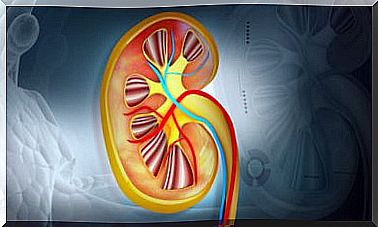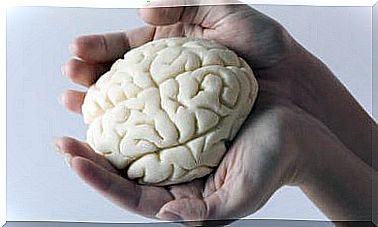Depression In The Elderly: How To Detect It In Time?
After retirement and from a certain age, older people can start to feel a certain depression, because they feel that they are no longer useful to society.

For various reasons that we will tell you about in the rest of this article, episodes of depression in people over the age of 60 may be more common.
Feelings of sadness, frustration and anger can affect their daily life. We will tell you how to detect depression in the elderly on time.
All you need to know about depression in the elderly
After retirement, many people feel worthless. Their life no longer seems to have meaning. This thought can cause them to be depressed. And they are not taking advantage of the years they have left to live, which can be 10, 15, 20 and more nowadays.
This is because depression is common in older people, even though it is not part of the natural aging process.
It can be related to the changes they have had to face in recent years. To the recognition they expect from their past life. Their relationships with the various members of their family and the activities they carry out on a daily basis.
Lifestyle changes in the 60s are very common and very important. A person can work their entire life, Monday to Friday, 9 a.m. to 6 p.m., and then find themselves alone at home overnight, but with nothing special to do.
But other factors than the simple fact of being retired can also play in the appearance of this phenomenon.
- A move from the family home, to live in a smaller place.
- A move into a center for the elderly.
- Chronic pain or serious illness.
- The death of a spouse, family member or close friends.
- A loss of independence.
- A lack of obligations.
- A shortage of activities available.
- Economic difficulties.
Depression in the elderly is not always taken into account correctly by those around them. Because the symptoms of this pathology sometimes seem to be temporary. And we sometimes tend to easily call them whims.
Suicide risks
However, if the elderly person has negative thoughts for a long period of time, it can lead to physical illness. Some elders even refuse to eat or even attempt to commit suicide.
It is necessary to know that the discovery of an illness in an elderly person can very quickly lead to severe depression.
This is particularly the case when they are diagnosed with cancer, Parkinson’s disease or dementia. It can also get worse if they frequently use drugs such as sleeping pills or if they drink a lot of alcohol.
How to detect depression in the elderly in time?
When we are still active and are only 30 or 40 years old, we think of retirement as a golden period.
This is a period during which we will be able to enjoy a beautiful house by the sea or in the mountains. Or read the morning newspaper on the terrace and receive regular visits from our children and grandchildren.
However, the reality is often not so idyllic.
We may need to move into a retirement home for various reasons:
- Our loved ones cannot take care of us
- Our spouse is deceased,
- We suffer from a disease that causes great pain or loss of mobility,
- There is no other viable solution.
The aging process is the worst time of life for many people.
The loss of friends and loved ones, the feeling of inferiority due to a degraded physical or mental condition, the lack of attention of the family and the feeling of no longer being useful to anything in the family. society, these are all reasons that can cause the elderly to lose their footing.
This is why they so often experience periods of depression.
Children, grandchildren and close family can therefore easily detect the first symptoms of this mental disorder. They can then help their elders understand that their life is not over, that they still have a lot to discover.
Some of the main symptoms that accompany depression in the elderly include:
- Feelings of sadness or loss of motivation, which can last for several weeks,
- Loss of interest in things they did before retirement,
- Lack of satisfaction with their daily activities.
Elders can also experience:
- More fatigue than usual, even if they do not perform strenuous activities.
- Loss of appetite which affects their body weight.
- A desire to isolate themselves from those around them.
- Difficulty getting to sleep. In fact, senior citizens generally sleep less.
There are still other symptoms that we can analyze in our parents or grandparents:
- Feeling of inferiority,
- Feeling of guilt,
- Loss of self-confidence,
- Suicidal ideation,
- Strange behaviors, which they didn’t have before.
What to do about depression in the elderly?
The first step is to remind the person that old age is a stage in life that cannot be avoided. The feelings we have described above should not be part of this period of life which, like all the others, has its good and bad sides.
Physical and economic limitations are two of the main reasons that older people can experience depression.
- For the former, they can always choose stimulating and entertaining activities that are in line with their specific physical condition.
- In the second case, they have to ask their family for help. It is also a great way for children and grandchildren to give back to their ancestors for all that they have given in their lifetime.
On the other hand, those around them cannot and should not impose any activity on them. Especially if the elderly do not want it.
Only diplomacy needs to be used for this to work properly. Unless it is a matter of life and death, the elderly must be able to lead their life as they see fit.
And, of course, his relatives must support him in his choices. And also ensure a regular presence, such as a weekly visit for example.









